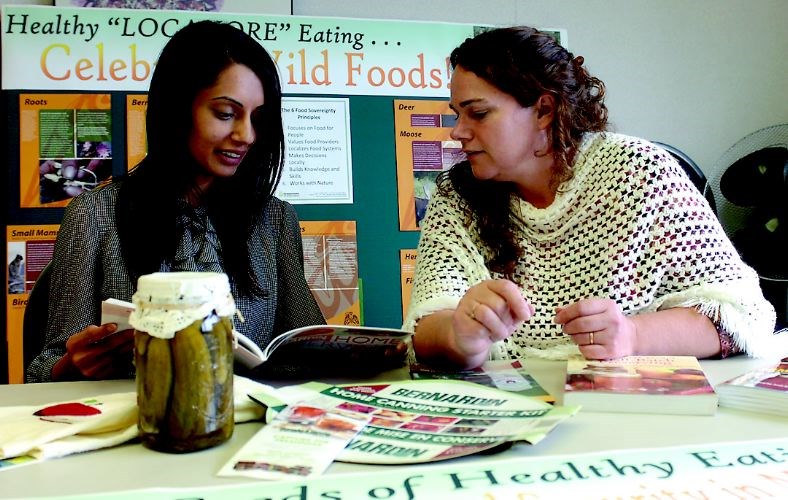Some consider it a lost art, but home canning appears to be making a comeback.
Fueled in part by the popularity of farmer's markets, local food movements and a growing aversion to processed food, individuals and families are turning to the age old tradition of canning to ensure a safe, affordable food supply.
Population health dietitian Loraina Stephen said there's a tradition of self-reliance in the culture of northern B.C., and canning is one way to ensure that continues.
"One of the key things to home canning is end up being able to have fresh, tasty, nutritious food all year round," Stephen said. "When you can peaches from the Okanagan, you can have them at Christmas and they're still regional."
Stephen said in addition to getting fruit from other parts of the province, there's plenty of local food available for canning, from fish and moose meat to tomato sauce and pickles. Adventurous chefs with the proper equipment can even try canning homemade stews and soups.
However, there remains both costs and psychological barriers for people wishing to try canning for the first time. Not only do you need to have the proper equipment - some foods require a boiling water canner, while other a more expensive pressure canner - there's also the knowledge gap which can be intimidating.
"The myth might be that it's not convenient and they don't have the skills," Stephen said. "What we would definitely say is this is something that might be a lost art but with a bit of practice it can actually be very quick."
Safety is also a concern as food improperly canned can become contaminated with the bacterium that causes botulism, a potentially fatal disease. Improperly canned food is the perfect breeding ground for the pathogen because of the constant moisture and temperature levels.
Environmental health officer Neelam Parmar said botulism can be particularly dangerous because the bacterium doesn't make the food taste off.
"The toxins are invisible to the naked eye and they don't affect the taste, the odour or the colour of the food," she said. "They're not necessarily destroyed by cooking because the spores can be heat resistant."
High acid foods, like many fruits, can be prepared using a boiling water canner. However, low acid foods like meat and fish, which have a higher risk of contamination, need to be prepared at a higher temperature in a pressure canner.
Even veteran canners need to pay attention as information can change over time. Stephen said it's important for anyone canning to get up-to-date books which have the latest safety data. She recommends books published by canning company Bernardin.
In addition to books, people can also take part in canning workshops, which take place occasionally from groups like Fresh Choice Kitchens. Both Stephen and Parmar are hopeful more canning courses can be offered in Prince George in the future as interest in home canning increases.
Other tips include:
n Only using tested recipes and not substituting ingredients.
n Dating and labelling all canned food as it should be consumed within a year.
n Storing canned food in a cool, dark room, such as a basement.
n Putting a sleeve around the jars to prevent them from being exposed to too much light.
Parmar said the environmental health officers have seen a steady increase in the number of people who want to sell their canned goods at local markets.
Aspiring vendors need to go through an application process from Northern Health to ensure the recipe they're using is safe. If it's not a proven recipe - for instance one that's been in the family for years - the health officers will take a sample and send it to a lab for testing.
Depending on the type of product they're making for sale, they may also need to prepare their goods in a commercial kitchen, rather than their own homes.
Parmar said environmental health officers do run into people at bake sales and other community events selling products which haven't been tested.
"Sometimes people will just do it without knowing that they need to go through these rules," she said. "We come across it all the time and we really work to educate people first."



